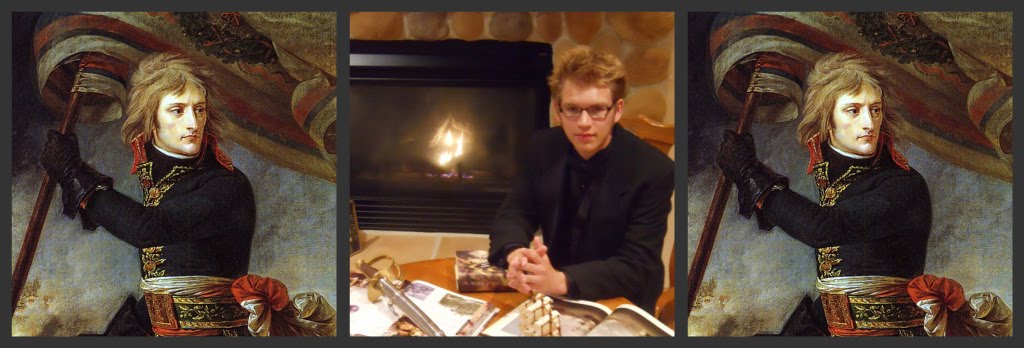While Napoleon possessed meteoritic skills that propelled him to greatness in his own time, irony remains for his legacy. During his own era, contemporaries among the British Isles attempted to demonize him for his success. Sadly, they, and the other Coalition powers, could not let the people of France determine their own government, philosophy, and lives. As such, Napoleon has been labeled as a tyrant or worse. Truly, I find this, along with the Ancien Régime's attempts to remove Revolutionary ideas from France, to be the most appalling notion of the era.
Yet, this tragic trend continues today. Throughout my blog, I have listed examples of how British stereotypes by Napoleon's contemporaries have continued to be pervasive in modern society. Additionally, I have tried to dispel these heinous lies and provide the true portrayal of the past. However, as I mentioned, these stereotypes continue to infest modern perceptions of L'Empereur.
Perhaps this crime is most apparent in modern works of cinema regarding the Napoleonic epic. Although several accurate films exist, largely, the Emperor is debased through modern cinematic representations of him. In this Sighting, I will examine several such travesties.
 |
| The Count of Monte Cristo |
One of my favorite films (and favorite authors, for that matter) is the 2002 version of Alexandre Dumas' The Count of Monte Cristo. However, while Napoleon is only briefly shown, the display is dishonorable. In the film, Napoleon gives his word of honor that a missive to be delivered in secret is of a civilian nature. He lies, and as a result, Edmund Dantes spends miserable years in prison. This depiction is a plot device used by Dumas, who (perhaps justifiably) hated Napoleon. Dumas' father was a Napoleonic general who was captured by enemies of Napoleonic France and then ignored by the Emperor. This resulted from previous, hard feelings between Dumas' father and Napoleon. Despite several petitions of assistance, Dumas' father was left in prison; he died and the Dumas family was essentially impoverished. As such, Dumas used his writing to often defame the Emperor. Thus, it is likely Dumas' fault that this film takes such a negative view of Napoleon; however, Napoleon was a man of his word and adhered to a code of honor. Such a false exchange is truly fictitious.
Several years ago, my friends and I attended Night at the Museum 2: Battle of the Smithsonian. Regardless of the movie's lacking merits, its depiction of Napoleon was again intolerable. The film pits the hero, a museum night guard, against several historic personas whose mannequins have come to life. These evil antagonists include a despotic pharaoh, Al Capone, Attila the Hun, Ivan the Terrible, and...Napoleon. Sitting amidst the theater seats, my temper began to rise. Napoleon, a man renowned for enacting democratic reforms, was lumped with a pharaoh, who was considered a god and respected as such by his enslaved subjects. Napoleon, a man who refused to go to war without excessive provocation, was compared to a barbarian cavalryman known as the "Scourge of God." Napoleon, whose Civil Code protected the human rights of his subject, was compared to a Ivan the Terrible, a Russian Tsar whose sobriquet describes him perfectly. Finally, in a moment of base ridiculousness, Napoleon was compared to an unrepentant murderer and gangster, Al Capone. I found each comparison to be unfounded, but on top of this, Napoleon was depicted as short, always wearing his bicorn, and constantly thrusting his hand into his coat: inane stereotypes abound!
I could list more films, such as Despicable Me's despicable placement of Napoleon in the Hall of Evil. Or Master and Commander: the Far Side of the World, which (as seen through British perspective) finds it fitting to denounce Napoleon I, Emperor of the French as "Old Boney" and compare him in apparent tyranny to the reign of Nero. However, I believe I've expounded enough. Simply put, modern cinema aggravatingly continues the trend of demonizing Napoleon. Perhaps as awareness of this historic travesty is gained, such fallacies will cease to exist in films dealing with or citing the period.
 |
| Despicable Indeed |



No comments:
Post a Comment